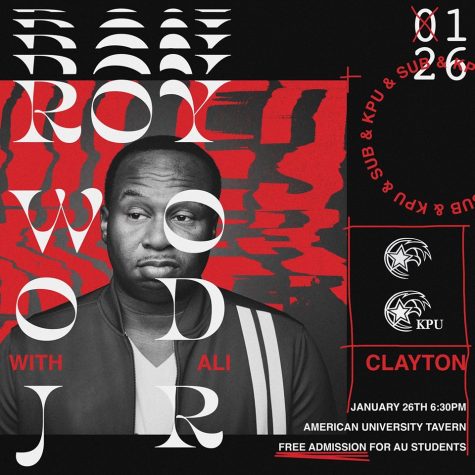Drug Testing After Decriminalization: Jobs or Joints?
Caught smoking a joint? No worries. The Simple Possession of Small Quantities of Marijuana Decriminalization Amendment Act of 2013 reduces marijuana possession penalties from a criminal misdemeanor to a non-arrestable civil infraction. Simply put, DC residents can no longer be cuffed for smoking or holding, small amounts of marijuana. Instead of incarceration, personal possession of up to an ounce now carries a $25 fine and possession in public carries a $100 fine. Further, marijuana-related criminal records are no longer permanent, and may not prevent DC residents from getting into a competitive college or attaining public housing.
However, smoking marijuana recreationally or medically can still affect job prospects, as companies have their own individual policies. Whether or not the drug is legal, companies still have every right to hire and fire employees based on drug tests.
The biggest push behind decriminalization is the huge racial disparity in arrests. Washington Lawyers’ Committee for Civil Rights and Urban Affairs, a non-profit organization targeting equality for African Americans and other ethnic minorities under the law, recently published a study stating that 60 percent of arrests in DC were for possession. Nearly nine out of ten of those arrests involved African Americans. However, African Americans use drugs at roughly the same rates as Caucasians, according to Targeting Blacks: Drug Law Enforcement and Race in the United States, a study conducted by the Human Rights Watch. The Washington Lawyer Committee for Civil Rights and Urban Affairs reported African Americans represent about 90% of the DC prison population for drug arrests– the most prevalent drug being marijuana. Often those arrested are young, black males.
Local DC police officer Phillip Hughes explains his discretion when deciding to make an arrest based on marijuana. If a high school kid is smoking marijuana in his backyard, Hughes would more likely just confiscate the drug than arrest them, as long as they don’t have a prior criminal record.
“An arrest is a life-changing experience, and it’s something I take seriously,” Hughes said. “I take into account thinking: ‘How is this arrest going to affect someone for the rest of their life?’ There is no set blanket policy to make an arrest. Sometimes it is important to consider a person’s age, criminal history and the nature of the crime when deciding to make an arrest. This new decriminalization bill will stop this from being an issue, at least in the case for marijuana arrests.”
While the laws of possession are changing, smoking recreationally, however, can still impact the likelihood of getting a job– even in states where recreational marijuana use is legal.
When seeking employment, a potential employer can ask you to take a drug test and can test for both legal and illegal substances. Passing a drug test matters as employees cannot be high on any drug while on the job, including legal drugs, such as prescription pills. Depending on the company, failing a drug test can be grounds for termination.
According to the Equal Employment Opportunity Commission, alcoholism is considered a disability under the Americans with Disabilities Act. Companies cannot legally discriminate against someone with alcoholism, but can deny a job offer if the use of alcohol adversely affects job performance. Illegal substance addiction, however, is not covered in the Act.
Twenty-one states have legalized medical marijuana for patients with extreme pain, cancer, and other conditions. Whether it is legal in their state, however, medical marijuana users are not protected from discrimination under federal law. Although marijuana has only been legalized on a state level, it is still illegal to consume on a federal level. And federal laws always trumps state laws. This creates a gray area with regard to drug testing in states with relaxed marijuana laws.
Therefore, companies can discriminate against those who smoke recreationally or even legal medical marijuana. In a recent federal court case, Casias v. Walmart, Joseph Casias was fired from Walmart for testing positive in his drug test. Casias, who suffered from sinus cancer and an inoperable brain tumor, used medical marijuana privately. He sued Walmart, claiming that his use was legal under Michigan state law. He was prescribed medical marijuana from his doctor for pain relief, although he did not tell Walmart he was using it. Testing positive, however, was ruled as reasonable grounds for Walmart to terminate Casias.
Casias lost his case because the Americans with Disabilities Act does not cover illegal substances on their lists of protections. Marijuana––in all forms––is still an illegal federal drug. A similar verdict was reached in Ross v. Ragingwire Telecommunications in California. The Supreme Court of California ruled that under California law, an employer may require pre-employment drug tests, and they may take illegal drug use into consideration when deciding to give a job offer.
“I think whether marijuana is legal or not, if businesses and employers want to base hiring and firing decisions based on marijuana use, that’s their right,” Dan Riffle, the director of federal policies at the Marijuana Policy Project, said. “But good luck finding qualified workers if you’re not going to hire someone who has consumed marijuana.”
If society decides that marijuana use doesn’t deserve discriminations, than corporations will eventually have to abide by that. But the law is usually a step behind when it comes to social changes. According to a recent survey by PEW Research, 52 percent of Americans are in favor of marijuana legalization. This decade is seeing America’s highest approval ratings ever, with pro-pot in the majority.
Is legalization the next step in DC? According to Riffle, “Criminalizing drug use stigmatizes it. It puts it in the shadow and makes it very difficult for people to identify and fix problems.”
One of the main problems is people don’t know exactly what kind of drug they’re getting from an underground market. Government regulation could help to stabilize this as well as reduce drug-related crimes.
“The business side of drugs is the side that we worry about because that’s where the violence comes from,” Hughes said. “We’re not seeing marijuana users hurting other people, generally. We are seeing drug dealers hurting other drug dealers, fighting over turf, fighting over business.” Prohibition causes these underground drug markets and drug violence to flourish. Drugs like methamphetamine, cocaine, and heroin have shown to cause an increase in violent and risky behavior, but marijuana use has not shown a significant increase in either behaviors.
Never before has a majority of the nation supported the legalization of marijuana. It is possible that federal change is the next step. In the meantime, look up the policies of any company to which you may apply. Know that, by signing on, you are bound by the marijuana policies a company holds– regardless of what your state or District may say.






